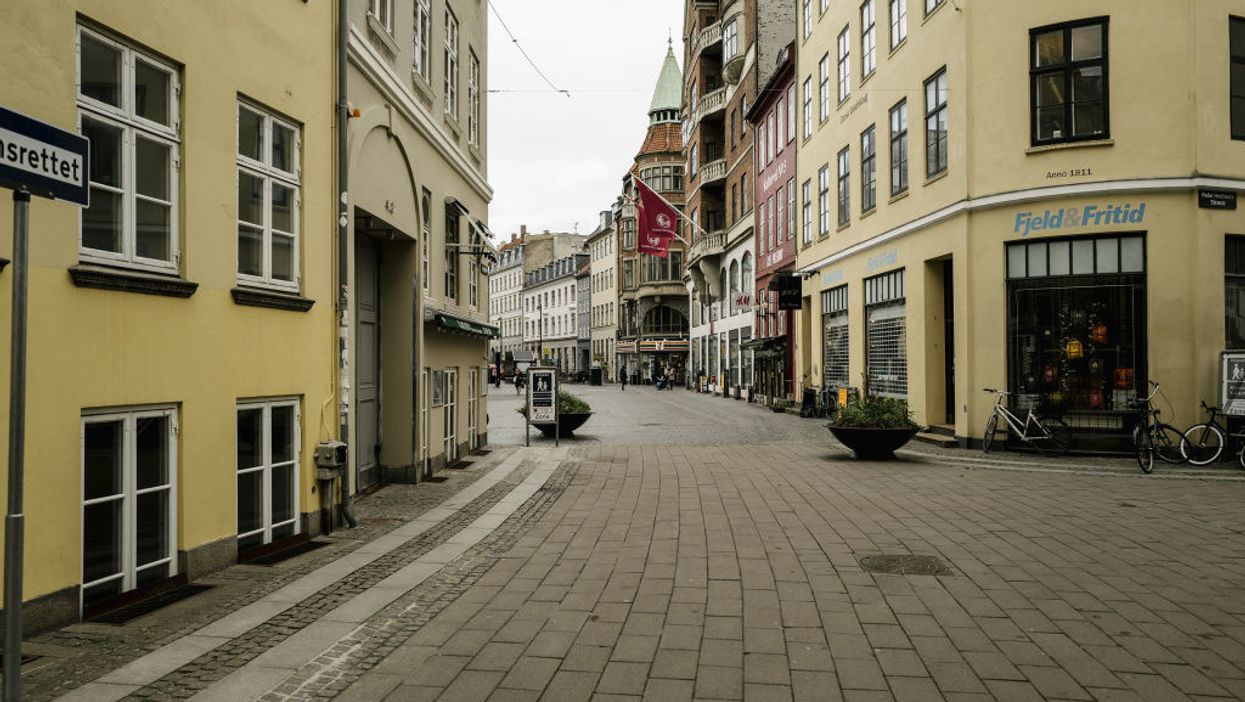
Rasmus Degnbol/Anadolu Agency via Getty Images

European countries will relax their coronavirus restrictions in a few days.
Multiple European countries will begin to relax some of their coronavirus lockdown restrictions, including Denmark reopening schools and day care centers next week, after experiencing several days of declining COVID-19 cases.
Denmark's schools and child care centers are set to reopen on April 15. Denmark Prime Minister Mette Frederiksen announced the Nordic country's plan to gradually soften restrictions earlier this week in a press conference.
"This will probably be a bit like walking the tightrope," Frederiksen said. "If we stand still along the way we could fall and if we go too fast it can go wrong. Therefore, we must take one cautious step at a time."
Denmark Health Minister Pernille Rosenkratz-Theil noted that schools that are not prepared will not be open to the public on Wednesday. "They will not be allowed to reopen until they can be sure that the rules are being complied with," Rosenkratz-Theil said. "It doesn't matter if it's one date or another one."
The ban on gatherings of more than 10 people in Denmark will continue until at least May 10, and the ban on large gatherings would remain in effect until August.
Frederiksen warned that the gradual lessening of restrictions would only happen if new coronavirus cases remain stable. She also reminded Danes that they still need to practice social distancing and hygiene.
Denmark was the second European nation, after Italy, to announce a lockdown because of the coronavirus pandemic. Denmark closed all restaurants, cafes, gyms, schools, and day care centers on March 11, despite having zero confirmed COVID-19 deaths at the time. Denmark also closed its borders to most foreigners starting on March 13.
Denmark has 260 coronavirus deaths and nearly 6,000 confirmed cases. New cases have declined for four straight days in the Scandinavian nation that has a population of 5.6 million.
Other European countries are also slowly easing restrictions. Austria will allow small shops of less than 4,305 square feet to return to business on April 14, followed by larger stores on May 1.
Based on how well the country is doing with new COVID-19 cases, Austria is targeting a mid-May timeline to allow restaurants, hotels, and schools to reopen. There will remain strict rules requiring people to wear masks, practice social distancing, disinfection requirements, and health checks on workers. Austrians must wear face masks at supermarkets, as well as while using public transportation. There will also be a limit as to how many people will be allowed in a store at one time. The earliest that public events could return is July.
Austria implemented a national lockdown on March 16, and the country's young leader credits the quick shutdown for the gradual reopening that will soon take place.
"We reacted faster and more restrictively in Austria than in other countries and were therefore able to prevent the worst from happening so far," the 33-year-old Austrian Chancellor Sebastian Kurz said at a press conference. "The quick and restrictive reaction now also gives us the opportunity to get out of this crisis faster."
Austria, which has a population of 9 million, has had nearly 1,400 confirmed cases and 337 deaths during the coronavirus pandemic.
The Czech Republic was the first European country to declare a state of emergency, a 30-day decree announced on March 13 that closed borders to Germany and Austria, and banned entry of foreigners from high-risk COVID-19 countries. Starting on April 14, the Czech government will ease restrictions on people leaving the country.
Those who want to travel abroad from the Czech Republic will need to present "reasonable grounds" to make their case for leaving the country. Those who do leave must also observe a two-week quarantine when they return.
The Czech government will also allow more kinds of stores to be open. Czech Trade Minister Karel Havlicek said retail locations selling construction materials, hobby supplies and bicycles will be permitted to do business again. Previously, only grocery stores, pharmacies, and garden stores were allowed to operate.
"We are clearly saying now that we are able to relatively well manage the pandemic here, it is not the pandemic managing us," said Czech Health Minister Adam Vojtech at a news conference on Monday.
The Czech Republic has experienced over 5,800 confirmed COVID-19 cases and 129 deaths.